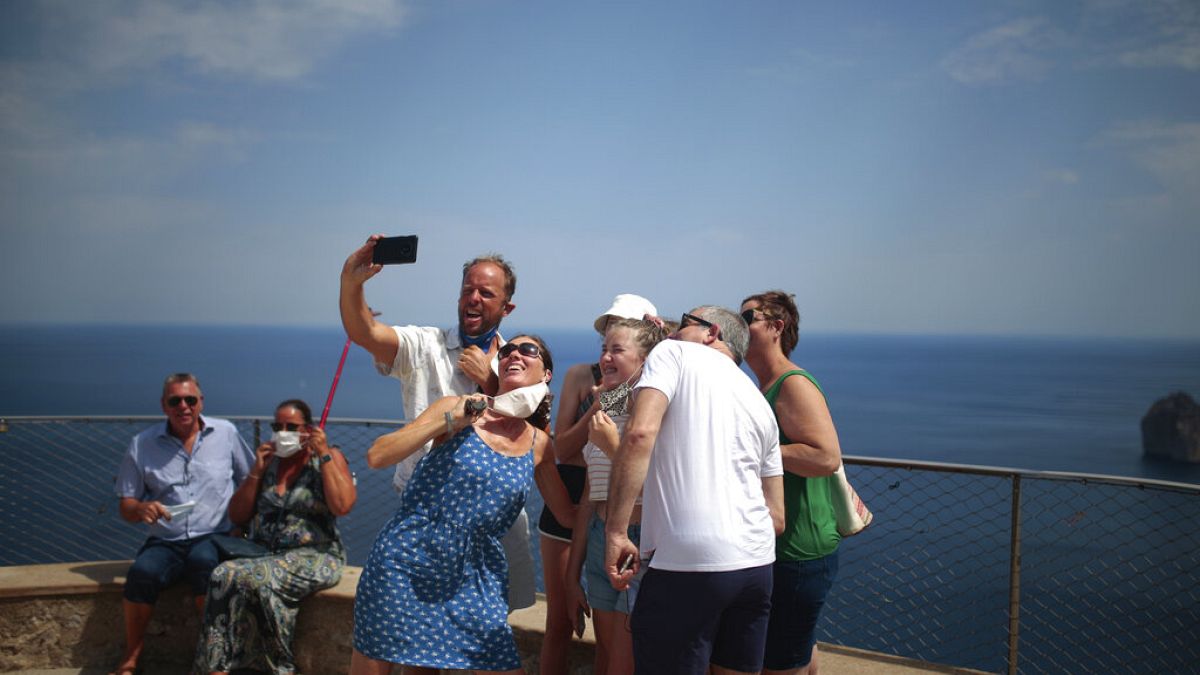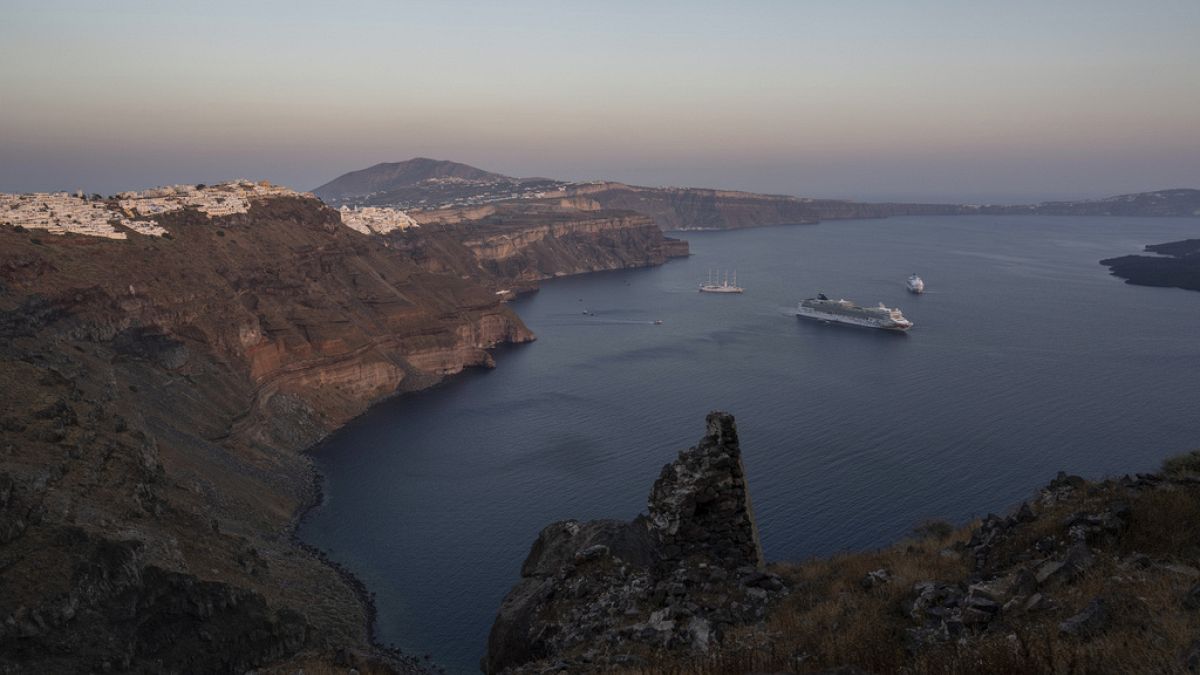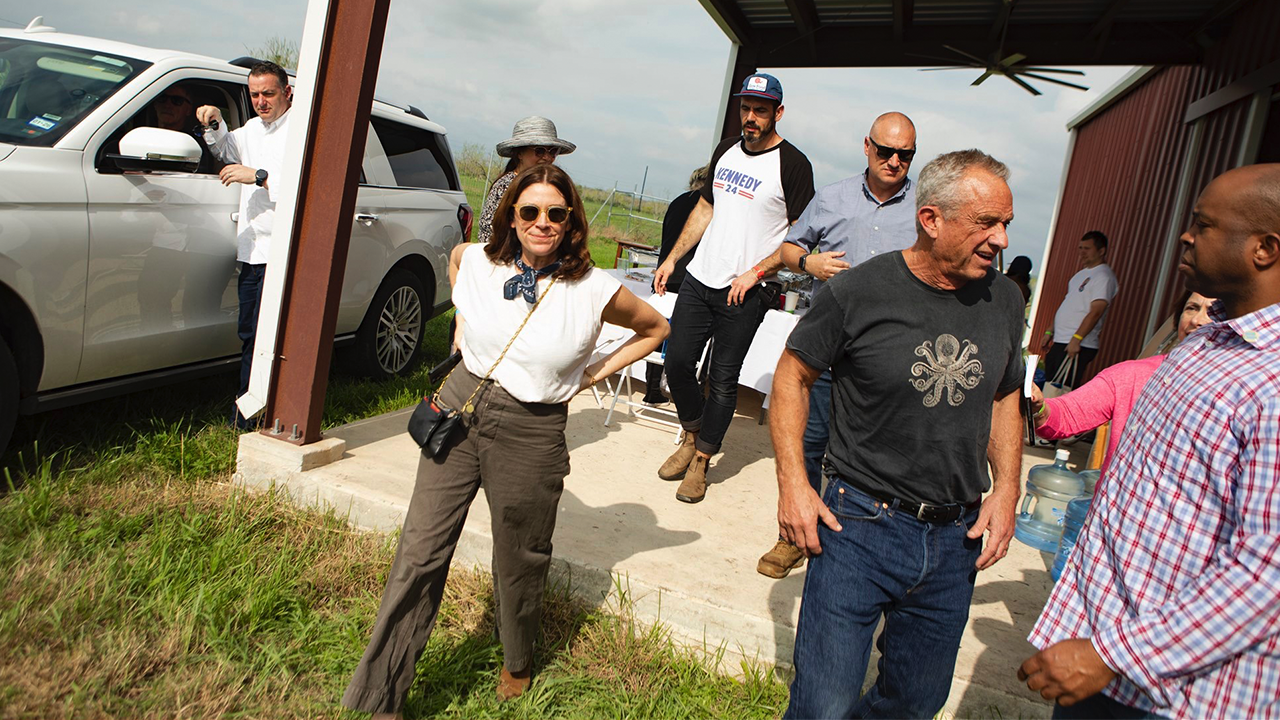Residents and visitors have been advised to avoid large indoor gatherings and areas where rock slides could occur.
Multiple earthquakes are rattling Santorini, a volcanic island in Greece, prompting authorities to dispatch rescuers with tents, a sniffer dog and drones, and to shut schools on four islands.
Precautions were also ordered on several nearby Aegean Sea islands – all popular summer vacation destinations – after more than 200 undersea earthquakes were recorded in the area over the past three days.
“These measures are precautionary, and authorities will remain vigilant,” Civil Protection Minister Vasilis Kikilias said late on Sunday following an emergency government meeting in Athens. “We urge citizens to strictly adhere to safety recommendations to minimise risk.”
Thousands of residents, seasonal workers and tourists have left the Cycladic Islands as hundreds of quakes up to magnitude 5 were recorded in the volcanic region since Friday. Ferry and commercial flight operators added services to accommodate departures.
Here’s everything you need to know if you are in Santorini or have a trip planned to the island.
Schools closed on Santorini after earthquake swarm
While Greek experts say the quakes, many with magnitudes over 4.5, are not linked to Santorini’s volcano, they acknowledge that the pattern of seismic activity is cause for concern.
The frequency of the quakes, which continued throughout Sunday night and into Monday, has worried residents.
“I have never felt anything like this and with such frequency – an earthquake every 10 or 20 minutes,” said resident Michalis Gerontakis, who is also the director of the Santorini Philharmonic Orchestra. “Everyone is anxious, even if some of us hide it not to cause panic, but everyone is worried.”
Government officials met with scientists throughout the weekend and on Monday to assess the situation, while schools were also ordered shut on the nearby islands of Amorgos, Anafi, and Ios.
Hotels told to drain swimming pools amid earthquake tremors
On Santorini, residents and visitors have been advised to avoid large indoor gatherings, old buildings and areas where rock slides could occur.
Hotels were instructed to drain swimming pools over concerns that large volumes of water could destabilise buildings in case of a strong quake.
The UK’s Foreign, Commonwealth & Development Office (FCDO) has updated its travel advice for Santorini and the neighbouring island of Amorgos and reiterated the advice from the Greek Ministry of Civil Protection.
“The Greek ministry advises people to avoid the ports of Amoudi, Armeni, Korfos and Old Port (Paleos Limenas) in the area of Fira and to choose safe routes when travelling, particularly in areas where the landslide risk is high,” the travel update reads.
“In case of a strong tremor, people should immediately depart coastal areas. If you are in the affected areas, you should follow the advice of the local authorities.”
Crescent-shaped Santorini is a premier tourism destination with daily arrivals via commercial flights, ferries, and cruise ships.
The island draws more than three million visitors annually to its whitewashed villages, built along dramatic cliffs formed by a massive volcanic eruption more than 3,500 years ago.
The location of settlements has created the dramatic scenery of cascading houses and sunset viewpoints that make the island so popular, but also raising concerns in the event of a major earthquake.
The sheer cliffs also make some areas prone to rock slides.
‘All scenarios remain open’
Prominent Greek seismologist Gerasimos Papadopoulos cautioned that the current earthquake sequence – displayed on live seismic maps as a growing cluster of dots between the islands of Santorini, Ios, Amorgos, and Anafi – could indicate a larger impending event.
“All scenarios remain open,” Papadopoulos wrote in an online post. “The number of tremors has increased, magnitudes have risen, and epicentres have shifted northeast. While these are tectonic quakes, not volcanic, the risk level has escalated.”
In Santorini’s main town of Fira, local authorities designated gathering points for residents in preparation for a potential evacuation, though Mayor Nikos Zorzos emphasised the preventive nature of the measures.
“We are obliged to make preparations. But being prepared for something does not mean it will happen,” he said during a weekend briefing. “Sometimes, the way the situation is reported, those reports may contain exaggerations […] so people should stay calm.”












